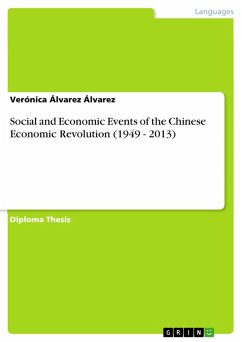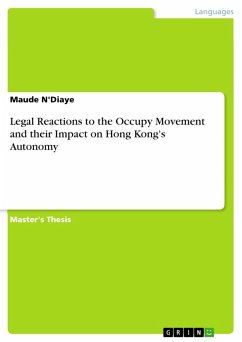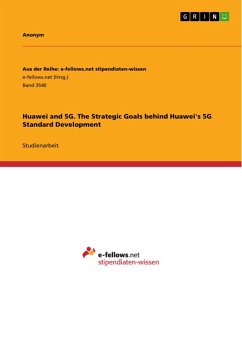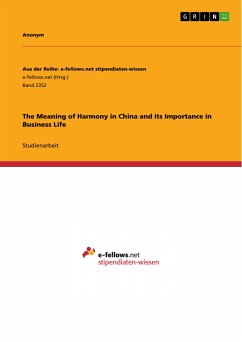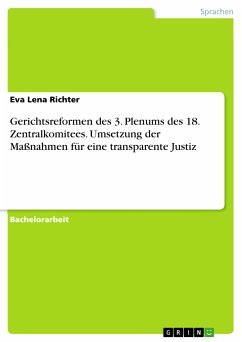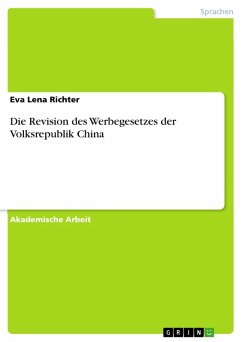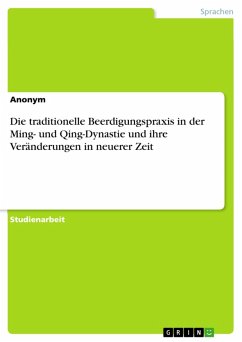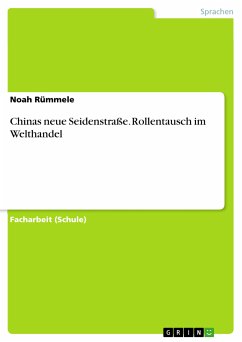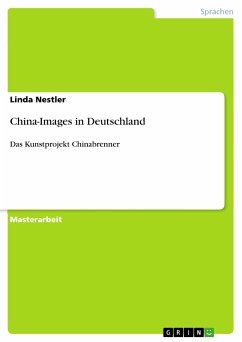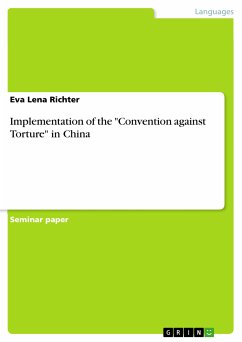
Implementation of the "Convention against Torture" in China (eBook, PDF)
Sofort per Download lieferbar
Statt: 17,95 €**
13,99 €
inkl. MwSt. und vom Verlag festgesetzt.
**Preis der gedruckten Ausgabe (Broschiertes Buch)
Weitere Ausgaben:

PAYBACK Punkte
0 °P sammeln!
Seminar paper from the year 2015 in the subject Orientalism / Sinology - Chinese / China, grade: 1,7, University of Cologne (Ostasiatisches Seminar), language: English, abstract: Treaties such as the "Convention against Torture and Other Cruel, Inhuman or Degrading Treatment or Punishment (CAT)" constitute through their sheer scope of member countries the global human rights instruments of today. Although not binding for non-members, the basic ideas of the CAT are of high significance even to those countries. Since China's ratification of the CAT in 1988, the government has made efforts to com...
Seminar paper from the year 2015 in the subject Orientalism / Sinology - Chinese / China, grade: 1,7, University of Cologne (Ostasiatisches Seminar), language: English, abstract: Treaties such as the "Convention against Torture and Other Cruel, Inhuman or Degrading Treatment or Punishment (CAT)" constitute through their sheer scope of member countries the global human rights instruments of today. Although not binding for non-members, the basic ideas of the CAT are of high significance even to those countries. Since China's ratification of the CAT in 1988, the government has made efforts to combat the widespread practice of torture throughout the judicial system and executive organs. This paper is outlining how the CAT has been implemented into Chinese laws and describes certain problems the implementation is facing. The paper consists of three chapters and a summary. First, the CAT is described. After defining torture and looking at the reservations and obligations of China upon ratification, an examination of China's legal framework is to follow in chapter three. In chapter four, problems and criticism concerning China's implementation are described. In the summary, the findings are recapitulated.
Dieser Download kann aus rechtlichen Gründen nur mit Rechnungsadresse in A, B, BG, CY, CZ, D, DK, EW, E, FIN, F, GR, HR, H, IRL, I, LT, L, LR, M, NL, PL, P, R, S, SLO, SK ausgeliefert werden.




